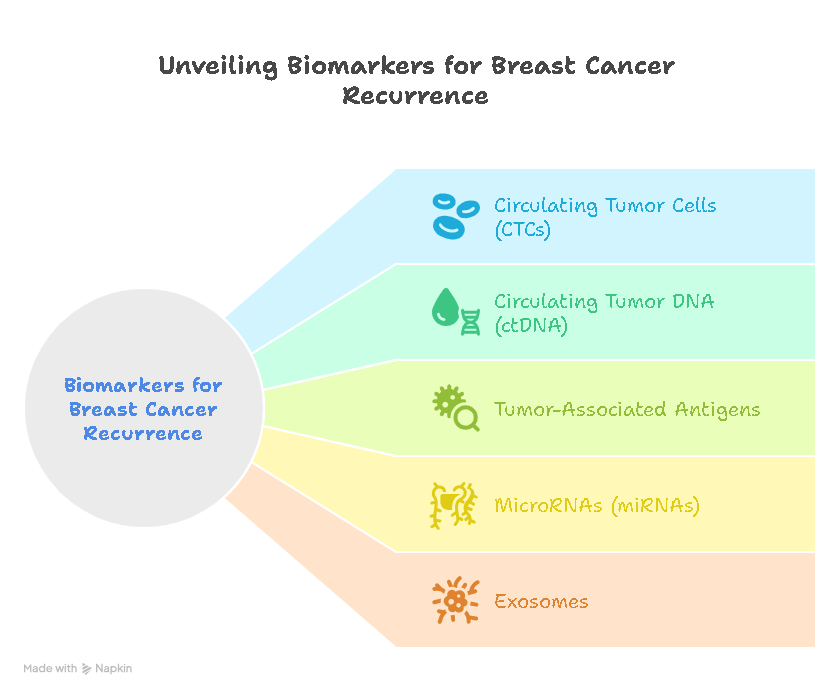Biological Clock Meaning in Humans:The concept of a biological clock refers to the internal mechanisms that regulate the timing of various physiological processes within living organisms, including humans. These internal timekeepers help orchestrate a wide range of bodily functions, from sleep and wake cycles to hormone secretion and even reproduction. Understanding how biological clocks function is essential to unlocking the secrets of human health, behavior, and well-being.

The Science Behind Biological Clocks
Humans possess an intricate system of biological clocks that are regulated by the circadian rhythm, which governs the 24-hour cycle of behavior and physiological functions. This system operates through a network of cells and signals that align with the Earth’s natural day-night cycle. The master clock, or the suprachiasmatic nucleus (SCN), located in the brain’s hypothalamus, plays a central role in regulating these biological processes. It synchronizes the body’s internal time with the external environment, primarily responding to light and darkness.
The SCN receives signals from the eyes and other sensory inputs, especially light, which is crucial for resetting the clock daily. For example, exposure to natural light during the day triggers the production of the hormone melatonin in the pineal gland as night approaches, preparing the body for sleep. Conversely, light exposure in the morning inhibits melatonin production, signaling the body to wake up.
Circadian Rhythms and Human Health
The most well-known biological clock in humans is the circadian rhythm, which governs the sleep-wake cycle. This rhythm influences not only sleep patterns but also the release of hormones, body temperature, and the regulation of metabolism. Disruptions to the circadian rhythm, such as those caused by shift work, jet lag, or irregular sleep habits, can have significant effects on physical and mental health. Chronic misalignment of this internal clock with external factors has been linked to conditions such as sleep disorders, cardiovascular disease, obesity, diabetes, and even depression.
In addition to circadian rhythms, there are other biological clocks in the human body that regulate processes like reproductive cycles (for women) and the aging process. For instance, the female reproductive system operates according to a monthly cycle, with the timing of ovulation and menstruation regulated by a complex interplay of hormonal signals that can be seen as a biological clock.
The Role of Genetics
Biological clocks in humans are not merely the result of external environmental cues. Genetic factors play an integral role in the regulation of these internal timepieces. A group of genes, known as clock genes, help control the biological clock by encoding proteins that interact in feedback loops. These genes help synchronize the rhythm of various physiological processes at both the cellular and organismal levels.
Interestingly, mutations in clock genes can lead to disruptions in the natural timing of biological processes. Such mutations may contribute to certain disorders, including sleep disturbances, metabolic dysfunction, and even some forms of cancer. Researchers continue to study the genetic basis of biological clocks in hopes of developing interventions that can mitigate these disruptions.
The Impact of Modern Life
In today’s fast-paced, technology-driven world, humans are increasingly exposed to artificial light, irregular work schedules, and other factors that can interfere with natural circadian rhythms. This misalignment of biological clocks with environmental cues has led to what some experts refer to as the “modern epidemic” of sleep deprivation and circadian rhythm disorders.

Incorporating good sleep hygiene, minimizing exposure to artificial light before bedtime, and maintaining a regular sleep schedule are vital steps in supporting the health of our biological clocks. Additionally, practices such as chronotherapy—adjusting lifestyle habits to align with the body’s natural rhythms—are gaining recognition for their potential to improve overall health and well-being.

Conclusion
The biological clock is a fascinating and essential aspect of human physiology that plays a pivotal role in regulating daily life. By understanding how biological clocks work and how they impact our health, we can better appreciate the importance of maintaining circadian rhythms and adopt practices that support the natural timing of our bodies. As science continues to unravel the mysteries of biological clocks, we may unlock new opportunities for preventing and treating a wide range of health conditions tied to the internal timing system.
Biological Clocks and Aging
One intriguing aspect of biological clocks in humans is their connection to aging. As we age, the function of our biological clocks tends to decline. This can manifest in irregular sleep patterns, changes in hormone regulation, and slower metabolism. Additionally, age-related disruptions to circadian rhythms have been associated with an increased risk of various health problems, such as cognitive decline, cardiovascular disease, and metabolic disorders.
Researchers are investigating the possibility of extending the healthy functioning of biological clocks in older adults through lifestyle interventions and even targeted therapies. For instance, increasing exposure to natural light during the day or using melatonin supplements at night may help re-synchronize biological clocks and mitigate some of the negative effects of aging.
Chronobiology: The Study of Biological Clocks
Chronobiology is the scientific study of biological rhythms, including the internal clocks that govern human physiology. This field of study has expanded in recent decades, with increasing interest in how our internal timekeepers influence everything from disease susceptibility to optimal performance.
One fascinating area of chronobiology research is the exploration of chronotherapy, which involves timing medical treatments to align with the body’s natural rhythms. For example, certain medications may be more effective when taken at specific times of day, corresponding to the body’s peak biological function. Additionally, understanding the relationship between circadian rhythms and mental health disorders, like depression and bipolar disorder, has led to the development of new treatments that focus on restoring natural rhythms.
Another cutting-edge aspect of chronobiology involves the potential for genetic manipulation to enhance or reset biological clocks. With advancements in gene editing technologies, researchers are investigating whether it’s possible to correct genetic mutations in clock genes or reset circadian rhythms, offering hope for individuals whose biological clocks are misaligned due to genetic disorders.
Social and Environmental Impacts
Our modern lifestyle—characterized by late nights, early mornings, and long hours spent in front of screens—has created an environment that often clashes with our natural biological rhythms. The use of smartphones, tablets, and computers before bed can interfere with melatonin production due to the blue light emitted by these devices. This phenomenon is commonly referred to as “digital jet lag” and can make it harder to fall asleep and maintain a healthy sleep cycle.
Moreover, the widespread practice of shift work has been shown to disrupt the circadian rhythms of workers, leading to a condition called shift work sleep disorder (SWSD). This condition, which affects millions of people worldwide, is linked to serious health risks such as obesity, diabetes, heart disease, and even cancer. Societal shifts, such as the increased demand for 24-hour services and the flexibility of remote work, have made it even more important to understand and address the impact of misaligned biological clocks.
The Future of Biological Clock Research
As our understanding of biological clocks continues to grow, so too does the potential for improving human health and performance. Future research could lead to personalized treatments for sleep disorders, metabolic conditions, and mental health issues that are tailored to an individual’s unique circadian rhythm.
In addition, advancements in wearable technology and digital health monitoring systems may allow us to track and regulate our biological clocks more effectively. These tools could help us optimize sleep, exercise, and nutrition to align with our internal rhythms, enhancing overall well-being and productivity.
Moreover, the potential for integrating chronobiology with other fields, such as precision medicine and genomics, opens the door to new breakthroughs in health care. By harnessing the power of biological clocks and aligning treatments with natural rhythms, we could usher in a new era of preventative medicine and individualized care.
Conclusion
The biological clock is an essential part of human biology, governing not only the sleep-wake cycle but also a wide array of physiological processes, from hormone regulation to metabolism. As science continues to unravel the mysteries of biological clocks, it becomes increasingly clear that understanding and respecting these internal timekeepers is crucial for maintaining optimal health. By prioritizing good sleep hygiene, aligning our lifestyles with natural rhythms, and continuing research into chronobiology, we can unlock new ways to improve both the quality and quantity of life. The more we learn about our biological clocks, the better equipped we will be to optimize our health and well-being in a fast-paced, ever-changing world.
Practical Tips for Aligning with Your Biological Clock
While scientific research on biological clocks continues to expand, there are several practical steps that individuals can take to align their daily routines with their internal rhythms. By making small adjustments, people can improve their health, mood, and overall well-being. Here are a few tips to support your biological clock:
- Stick to a Regular Sleep Schedule
Try to go to bed and wake up at the same time every day, even on weekends. This consistency helps reinforce the timing of your circadian rhythm, making it easier for your body to know when to rest and when to be active. A predictable sleep routine has been shown to improve both the quality and duration of sleep. - Get Morning Sunlight
Exposure to natural light in the morning helps regulate your circadian rhythm by signaling to your body that it is time to be awake and alert. Aim to spend at least 20–30 minutes outside in the sunlight each morning, or sit near a bright window if possible. Morning light is especially important for those working from home or those living in areas with limited daylight. - Limit Blue Light Exposure Before Bed
The blue light emitted by screens on phones, computers, and televisions can suppress melatonin production, making it harder to fall asleep. To counter this, limit screen time at least one hour before bed. Alternatively, use apps or settings that reduce blue light exposure during the evening or invest in blue light-blocking glasses. - Be Mindful of Caffeine and Alcohol
Caffeine is a stimulant that can interfere with your ability to fall asleep, particularly if consumed in the afternoon or evening. Similarly, while alcohol may help you fall asleep initially, it can disrupt the deeper stages of sleep. Limiting both caffeine and alcohol intake during the latter part of the day is important for preserving your biological clock and sleep quality. - Exercise at the Right Time
Regular physical activity can help stabilize your circadian rhythm. Ideally, try to exercise earlier in the day or in the early evening. Exercising too late at night can elevate your heart rate and body temperature, making it harder to unwind and sleep. However, some light stretching or relaxation exercises can help ease your body into a restful state before bed. - Create a Relaxing Bedtime Routine
Establish a calming pre-sleep routine that signals to your brain that it’s time to wind down. This might include activities such as reading a book, meditating, or listening to soothing music. Avoid stressful or stimulating activities that could keep your mind active. - Adjust Your Environment
Make sure your sleep environment is conducive to rest. A cool, dark, and quiet room is ideal for supporting your biological clock. Consider using blackout curtains, earplugs, or a white noise machine to eliminate disturbances that may interfere with your sleep.
The Role of Nutrition in Biological Clocks
Nutrition also plays an important role in regulating biological clocks, particularly in relation to metabolism and sleep. Certain foods can influence your body’s production of key hormones like melatonin and cortisol, both of which are central to regulating your sleep-wake cycle.
- Melatonin-Rich Foods: Incorporating melatonin-rich foods, such as cherries, grapes, and walnuts, may help promote a natural sleep cycle. Additionally, foods high in tryptophan, such as turkey, bananas, and oats, can help boost serotonin levels, which are converted to melatonin in the body.
- Caffeine and Sugar: As mentioned earlier, caffeine can significantly affect sleep if consumed too late in the day. Similarly, large amounts of sugar can cause blood sugar levels to spike and drop, potentially disrupting your body’s rhythm. Consider minimizing your intake of these substances, especially in the hours leading up to bedtime.
Biological Clocks and Mental Health
Emerging research suggests that disruptions to biological clocks are closely tied to mental health conditions. Misalignments in circadian rhythms are commonly seen in people suffering from mood disorders like depression and anxiety. In some cases, aligning the sleep-wake cycle through behavioral therapy, light exposure, and medications that support circadian rhythms can help alleviate symptoms.
For individuals with seasonal affective disorder (SAD), light therapy, which mimics the effects of natural sunlight, is often used to re-regulate the biological clock during the darker months of the year. This can help improve mood, energy levels, and sleep quality.
The Link Between Biological Clocks and Immune Function
The immune system is also influenced by our biological clocks. Research has shown that immune responses, such as the body’s ability to fight infection, are regulated in part by circadian rhythms. For example, the production of certain immune cells is higher during specific times of the day. This has led to the exploration of chronotherapy in immunology, where the timing of vaccinations or treatments may be optimized for better efficacy based on the individual’s biological clock.
Maintaining a well-regulated biological clock may, therefore, help improve immune function and overall resilience to illness.
Conclusion
The biological clock is an essential and fascinating aspect of human biology that governs our daily rhythms and regulates a wide variety of physiological functions. From sleep and mood to immune health and metabolism, the internal timing system of our bodies plays a crucial role in maintaining balance and promoting wellness. By understanding and respecting the natural rhythms of our biological clocks, we can optimize our health, performance, and quality of life.
As research in chronobiology continues to evolve, we may see more personalized approaches to healthcare that take into account the timing of treatments, activities, and even nutrition. The future of biological clock research holds exciting possibilities for preventing and managing a variety of conditions, giving us the opportunity to live more balanced, healthier lives. By tuning into our biological clocks, we can unlock new levels of vitality, resilience, and longevity.
The Global Impact of Disrupted Biological Clocks
In today’s fast-paced world, where globalization and technological advancements have led to irregular work hours, long-distance travel, and 24/7 connectivity, disruptions to biological clocks have become more common. The global workforce is now working across multiple time zones, which, while offering flexibility, also brings about an increase in jet lag, shift work disorders, and difficulty maintaining a stable sleep-wake cycle.
Jet lag, a phenomenon where the body’s internal clock struggles to adjust to a new time zone after long-distance travel, is a clear example of how misaligning the biological clock can affect the body. The symptoms of jet lag—fatigue, difficulty concentrating, and disrupted sleep—can last for days, impacting both personal well-being and professional productivity. Studies have shown that individuals who frequently travel across time zones are more likely to experience long-term health effects, including cognitive impairment and even an increased risk of cardiovascular disease.
Shift work is another significant contributor to biological clock disruptions. While it provides essential services around the clock, working nontraditional hours (such as nights or rotating shifts) creates an imbalance between the body’s natural circadian rhythms and the demands of the job. This misalignment has been linked to an increased risk of metabolic issues (such as obesity and diabetes), cardiovascular diseases, sleep disorders, and even cancer. Many healthcare workers, transportation personnel, and factory workers, for example, are more vulnerable to these health challenges because of irregular work hours.
To mitigate the effects of disrupted biological clocks due to shift work or jet lag, organizations are exploring strategies such as light therapy, melatonin supplements, and the promotion of sleep hygiene. These efforts aim to support workers’ circadian rhythms and minimize the health risks associated with shift work. For frequent travelers, adjusting schedules in advance of travel, staying hydrated, and using light exposure strategically can help ease the body’s adjustment to new time zones.
The Role of Technology in Managing Biological Clocks
Advances in technology have not only contributed to the disruption of biological clocks but also offered potential solutions. Wearable devices and mobile apps are now widely available to help individuals monitor their sleep patterns, circadian rhythms, and overall health.
Wearable devices such as fitness trackers and smartwatches can provide valuable insights into sleep quality, heart rate, and physical activity, all of which are influenced by biological clocks. These tools help users understand when their bodies are most alert or fatigued, which can guide the optimal timing for exercise, work, and relaxation. Additionally, some devices are designed to emit light or use sound to mimic natural light patterns, helping users reset their circadian rhythm in cases of jet lag or shift work.
Mobile apps designed for sleep management and circadian rhythm tracking can offer personalized advice and reminders for sleep hygiene. They may include features such as bedtime reminders, recommendations for light exposure, and tips for winding down before sleep. Some apps even track how environmental factors (such as room temperature, noise levels, or caffeine intake) affect sleep quality, providing users with actionable insights to improve their sleep and, by extension, their overall health.
The growing trend of artificial intelligence (AI) and machine learning in healthcare could further enhance the understanding and management of biological clocks. AI could predict optimal treatment times for patients, personalize sleep schedules, and even recommend lifestyle changes based on an individual’s circadian rhythm patterns.
Ethical Considerations and Future Challenges
As our understanding of biological clocks and their profound influence on health continues to expand, ethical considerations regarding the manipulation of these internal timepieces will become increasingly important. While the idea of enhancing or resetting biological clocks through technology and gene editing holds great promise, it also raises concerns about unintended consequences.

For example, the use of light therapy or melatonin supplements to regulate circadian rhythms in shift workers or people with sleep disorders may provide short-term relief but could potentially cause long-term health risks if not carefully managed. Similarly, while gene editing techniques hold the potential to correct disruptions in biological clocks, the long-term effects on genetic diversity and human evolution are still unknown.
Moreover, there is the challenge of accessibility. While advancements in wearable technology and biological clock research may improve the lives of many, not everyone has access to the latest devices or treatments. Ensuring equitable access to these innovations will be crucial to ensure that biological clock-related health improvements are available to all populations, not just the privileged few.
The Future of Biological Clock Research
Looking ahead, researchers will continue to delve deeper into the mysteries of biological clocks. One area of interest is chronobiological medicine, which involves using the timing of medical treatments to align with the body’s natural rhythms. For example, certain medications may work better when taken at specific times of the day or in alignment with a person’s biological clock. Chronotherapy could offer personalized treatment options for conditions such as cancer, cardiovascular diseases, and metabolic disorders, improving treatment outcomes and minimizing side effects.
Another emerging area of study is the connection between biological clocks and neurodegenerative diseases, such as Alzheimer’s disease and Parkinson’s disease. Scientists are exploring whether disruptions in circadian rhythms play a role in the onset or progression of these diseases. By targeting circadian mechanisms, there may be new opportunities to delay or prevent cognitive decline.
In addition, advancements in genetic research could open doors to targeted interventions for individuals with circadian rhythm disorders. Gene therapy may one day be able to correct genetic mutations in clock genes, offering hope for those with inherited sleep disorders or other related conditions.
Conclusion
Biological clocks are at the core of our daily lives, guiding everything from sleep to metabolism, and influencing mental and physical health. The more we learn about these internal timekeepers, the more we realize their importance in maintaining a balanced and healthy life. While modern life presents numerous challenges to our biological clocks, there are numerous ways to manage and optimize these rhythms for better health and well-being.
By understanding the science behind biological clocks, improving sleep hygiene, and embracing technological advancements, we can enhance our lives and potentially prevent or manage a range of health conditions. As research in chronobiology continues to evolve, the future holds promising possibilities for personalized treatments and interventions that align with our natural rhythms. Ultimately, respecting and synchronizing with our biological clocks may be one of the most important steps we can take to ensure a healthier and more balanced future.
Implications for Public Health Policy
The growing body of research on biological clocks is not only relevant for individual health but also for public health policy. Policymakers, employers, and healthcare systems may soon need to consider the importance of circadian rhythms in their strategies for improving population health and well-being.
Workplace Regulations: Given the well-documented health risks of shift work, there is increasing pressure for organizations and governments to implement policies that promote better work schedules. For example, some countries have already introduced measures to limit the number of night shifts an employee can work in a row, or mandate minimum recovery periods between shifts. In addition, workplaces that offer flexible hours or remote work options can allow employees to better align their work schedules with their natural biological rhythms, improving productivity and overall health.
Public Health Campaigns: Governments and health organizations could launch public health campaigns to raise awareness about the importance of sleep and maintaining healthy biological clocks. These campaigns could target specific populations—such as shift workers, frequent travelers, or adolescents—who are more susceptible to disruptions in their circadian rhythms. By encouraging better sleep habits, proper light exposure, and lifestyle adjustments, public health interventions could improve the general health of society and reduce healthcare costs related to sleep disorders, mental health issues, and chronic diseases.
Healthcare System Integration: Healthcare providers may need to incorporate the understanding of biological clocks into their clinical practices. This might involve offering personalized health advice based on a patient’s circadian rhythm or recommending treatments that align with optimal times during the day. For example, chronotherapy for sleep disorders, depression, or cancer treatments could be adopted more widely. Furthermore, ensuring that hospitals and healthcare settings are designed to minimize disruptions to patients’ circadian rhythms, such as reducing nighttime lighting or limiting unnecessary noise, could aid in recovery and improve patient outcomes.
The Intersection of Technology, Genetics, and Biological Clocks
As we look to the future, the intersection of technology, genetics, and biological clocks will likely lead to new breakthroughs in both our understanding and manipulation of circadian rhythms. We are already seeing advances in technologies like wearable devices and mobile apps that help individuals monitor and regulate their biological clocks. But the potential for genetic research to influence biological clocks is an exciting frontier that could reshape the way we approach health.
One area of focus is genetic interventions that could address inherited circadian rhythm disorders. Individuals with conditions like familial advanced sleep phase disorder (FASPD) or delayed sleep phase disorder (DSPD) may benefit from gene therapies that adjust the timing of their internal clocks. Researchers are investigating how clock genes, such as PER1, PER2, CRY1, and CLOCK, influence our sleep patterns. By understanding how these genes work and how they can be altered, we may one day have the tools to directly modify an individual’s circadian rhythm.
Moreover, gene editing technologies like CRISPR-Cas9 could potentially be used to correct genetic mutations that cause sleep disorders or other biological clock-related conditions. This could open up new treatment possibilities for people who suffer from severe sleep problems that are otherwise resistant to conventional therapies.

Bridging the Gap Between Science and Daily Life
One of the key challenges in biological clock research is bridging the gap between cutting-edge science and practical, everyday application. While scientists are making exciting discoveries, there is still much work to be done in translating these findings into easy-to-follow guidelines and interventions that can be applied to the general public.
Education is crucial in this regard. Many people are unaware of the profound impact their biological clocks have on their health, and as a result, they may not prioritize behaviors that support their natural rhythms. Public health campaigns that educate people about the importance of sleep, light exposure, and the timing of activities could help individuals make informed decisions that support their biological clocks.
Furthermore, there is a need for personalized healthcare based on biological rhythms. As we gain more insight into the genetic and environmental factors that influence circadian rhythms, we can begin to tailor health recommendations to each person’s unique biological clock. This level of personalization, which could include customized sleep schedules, nutritional advice, and treatment plans, represents the future of healthcare.
The Role of Sleep in Maintaining Biological Clocks
Among the many biological processes influenced by circadian rhythms, sleep is the most significant. Sleep is not just a time for the body to rest; it’s a critical period for physical and mental recovery. During sleep, the body repairs tissues, strengthens the immune system, and consolidates memories. These processes are tightly regulated by the biological clock.
Sleep disorders, such as insomnia, sleep apnea, and narcolepsy, often arise when biological clocks are misaligned or disrupted. These disorders can have far-reaching effects on overall health, contributing to issues like chronic fatigue, depression, weight gain, and increased susceptibility to illness. As our understanding of biological clocks deepens, new therapies and treatments aimed at regulating sleep will likely emerge. This could include medications, light therapy, behavioral interventions, and even novel approaches like sleep chronotherapy, which involves adjusting sleep patterns according to an individual’s biological clock.

Conclusion: Embracing the Power of Biological Clocks
Biological clocks are fundamental to our daily lives, influencing a wide range of physiological functions from sleep and hormone regulation to metabolism and immune function. With growing evidence of the connection between biological rhythms and health, it is becoming increasingly clear that maintaining the natural timing of our internal clocks is essential for overall well-being.
As science continues to unravel the complexities of biological clocks, we can expect to see more personalized and targeted interventions in healthcare, workplace policies, and public health strategies. From improving sleep hygiene and managing circadian rhythm disorders to harnessing technological innovations for better health outcomes, we are on the verge of a new era in which our biological clocks are more accurately understood and carefully managed.

The future holds promising opportunities for improving the quality of life for individuals and populations, unlocking new ways to optimize health, prevent disease, and enhance productivity. By learning to live in harmony with our biological clocks, we can create a healthier, more balanced world—one that is better aligned with the natural rhythms of the human body.
The Societal Shift Towards Recognizing Biological Rhythms
As our understanding of biological clocks expands, society may begin to adapt in ways that better align with the natural rhythms of the human body. This shift could have far-reaching implications across various sectors, from work culture to education, and could potentially transform how we approach daily life.
Workplace Adaptations: With more evidence showing the negative impacts of shift work and long hours on circadian rhythms, companies could implement practices that promote better alignment with natural body clocks. This might include offering more flexible working hours, allowing employees to adjust their work schedules to better fit their biological rhythms. For example, employees could be given the option to work during their peak productivity periods, which are often determined by their internal clocks. By focusing on outcomes rather than rigid work hours, organizations may see a boost in employee performance, satisfaction, and overall health.
Additionally, workplaces could invest in better lighting systems, such as daylight-mimicking lights, which adjust throughout the day to support the body’s natural circadian rhythm. These systems can help maintain energy levels, enhance mood, and improve focus among employees, especially those working in windowless or dimly lit environments. In some forward-thinking workplaces, providing employees with access to light therapy lamps could also help those who are impacted by irregular work schedules or the effects of the winter months.

Educational Institutions: Schools and universities could also benefit from recognizing the importance of biological clocks. Research has shown that adolescents, in particular, experience shifts in their circadian rhythms during puberty, causing them to naturally feel more alert later in the day. Early school start times have been linked to insufficient sleep, decreased academic performance, and increased stress. By shifting school start times to later in the day, educational institutions could better align with the natural sleep cycles of students, leading to improved academic outcomes and mental well-being.
In addition, incorporating sleep education into school curricula could help students understand the importance of sleep hygiene and how biological clocks influence learning, mood, and physical health. Educating the younger generation about the science behind circadian rhythms could have a lasting impact on society’s approach to health and wellness in the future.
Integrating Biological Clocks into Public Health Policies
Recognizing the importance of biological clocks should also be a priority in public health policy. Governments can take steps to create environments that support natural biological rhythms, from the design of public spaces to healthcare initiatives that emphasize the importance of circadian alignment.

For example, urban planning could focus on creating environments that promote access to natural light and green spaces. Parks, outdoor seating areas, and natural elements within the built environment have been shown to improve well-being and reduce stress, which is important for maintaining healthy biological rhythms. Additionally, cities could implement policies to reduce light pollution, which disrupts circadian rhythms by exposing people to artificial light at night. Darker skies and regulated nighttime lighting can help improve sleep quality and overall health for residents.
Public health campaigns could focus on the link between circadian rhythms and chronic disease prevention. Research has shown that people with misaligned biological clocks have a higher risk of developing diseases like heart disease, diabetes, and cancer. Public health initiatives could emphasize the importance of aligning activities like eating, exercising, and sleeping with the body’s natural rhythms to reduce the risk of such diseases.
Healthcare systems may also need to integrate chronobiology into their routine practices. For instance, doctors could be trained to consider the timing of treatments or medications based on patients’ biological clocks. Chronotherapy could be used to maximize the effectiveness of treatments like chemotherapy, blood pressure medications, or diabetes management. For example, medications may work better if taken at specific times of day when the body is most receptive to them, and this knowledge could be applied to enhance the efficacy of treatments.

The Role of Genetics in Circadian Rhythms
As science advances, we will likely uncover more about the genetic basis of biological clocks. Some people may have inherited variations in their clock genes that cause them to be naturally “early birds” or “night owls.” These genetic differences can make it harder for some individuals to adjust to societal norms, such as traditional work hours, and can lead to challenges in managing sleep and energy levels.
The study of chronogenetics could lead to personalized treatments for individuals whose biological clocks are genetically misaligned. For example, genetic tests could help identify individuals at risk for circadian rhythm disorders or those who may benefit from specific therapies to realign their sleep-wake cycles. Advances in gene editing could one day offer the possibility of correcting genetic variations that cause disorders like Delayed Sleep Phase Disorder (DSPD) or Familial Advanced Sleep Phase Disorder (FASPD), helping people live in sync with their natural body clocks.
Additionally, the potential for pharmacogenomics—the study of how genes affect an individual’s response to drugs—could lead to treatments tailored to a person’s unique biological rhythm. This could be particularly useful for those with sleep disorders or mental health issues, such as depression, where circadian disruptions play a role. By aligning medication timing with an individual’s genetic makeup and biological clock, healthcare providers could improve treatment outcomes and reduce side effects.
The Future of Chronobiology
The future of chronobiology holds exciting possibilities, not just in the realm of healthcare, but across various industries. As we continue to deepen our understanding of biological clocks, there will be opportunities to apply this knowledge in ways that enhance human potential and improve quality of life. Some of the most promising areas for future research include:
- Precision Sleep Medicine: Personalized sleep interventions based on genetic testing and circadian rhythm analysis could allow individuals to achieve optimal sleep quality. This could reduce the incidence of sleep disorders and improve mental health outcomes for millions of people.
- Wearable Chronotherapy: Devices designed to track circadian rhythms and deliver targeted light therapy or adjust environmental factors like temperature could help people maintain healthy biological rhythms, even in disruptive environments like shift work or long-haul travel.
- Circadian-optimized Diets: Emerging research suggests that meal timing may influence the body’s metabolism and circadian rhythms. A chrononutrition approach—where meals are consumed at specific times to support natural biological rhythms—could help improve metabolic health and weight management.
- Longer, Healthier Lifespan: As researchers continue to investigate the impact of biological clocks on aging, it may become possible to delay the aging process by resetting or maintaining healthy circadian rhythms. Interventions that enhance biological clock function could lead to longer, healthier lives, with a reduction in age-related diseases.

Final Thoughts: A New Era of Biological Awareness
As our understanding of biological clocks deepens, it’s clear that these internal timekeepers play a critical role in nearly every aspect of our lives—from our sleep patterns and mental health to our physical well-being and longevity. The potential to optimize these rhythms offers exciting opportunities not only for personal health improvement but also for societal shifts that promote healthier lifestyles for everyone.
By embracing this knowledge, we can move toward a future where individuals, healthcare systems, workplaces, and communities work in harmony with the natural rhythms of the body. In this new era, understanding and respecting the power of biological clocks could become a cornerstone of public health strategies, leading to healthier, more balanced lives for people around the world.
As we continue to explore the complex relationship between biology and time, we may find that the key to unlocking human potential lies in aligning our modern world with the ancient rhythms that govern our bodies. This holistic approach, rooted in the science of circadian biology, could hold the secret to a more sustainable, vibrant, and fulfilling life for all.
Frequently Asked Questions (FAQs) on Biological Clock
1. What is the biological clock?
The biological clock refers to the internal mechanism in the body that regulates the timing of various physiological processes, such as sleep, hormone release, metabolism, and body temperature. This internal timing system is primarily governed by the circadian rhythm, a 24-hour cycle that helps the body respond to changes in light and dark.
2. How does the biological clock work?
The biological clock operates mainly through the circadian rhythm, which is controlled by a region of the brain called the suprachiasmatic nucleus (SCN). This part of the brain receives signals from light and dark cycles and coordinates the body’s processes to match the external environment. For example, exposure to natural light in the morning helps regulate the sleep-wake cycle by signaling to the body that it’s time to be awake and alert.
3. What are circadian rhythms?
Circadian rhythms are 24-hour cycles in the body that regulate processes like sleep, alertness, and digestion. These rhythms are controlled by the biological clock, and they are synchronized with the earth’s day-night cycle. They influence when you feel awake, when you feel sleepy, and how your body functions throughout the day.
4. Why is the biological clock important?
The biological clock is essential because it helps the body function optimally by maintaining a proper balance between sleep, wakefulness, and other physiological processes. It influences how well you sleep, how your body handles stress, your mood, metabolism, and overall health. Disruptions to the biological clock can lead to various health problems, such as sleep disorders, fatigue, and chronic conditions like heart disease and diabetes.
5. What happens when the biological clock is disrupted?
Disruptions to the biological clock can lead to a variety of issues, including insomnia, jet lag, and shift work sleep disorders. When your circadian rhythms are misaligned with external factors (such as irregular work hours or frequent time zone changes), it can affect your sleep, mood, cognitive function, and metabolism. Long-term disruptions may contribute to more severe health problems, like obesity, heart disease, or mental health disorders.
6. What causes disruptions to the biological clock?
Several factors can disrupt the biological clock, including:
- Shift work: Working night shifts or rotating shifts can interfere with the natural sleep-wake cycle.
- Jet lag: Traveling across multiple time zones can confuse the body’s internal clock.
- Exposure to artificial light: Excessive exposure to blue light from screens (phones, computers, TVs) can interfere with melatonin production, making it harder to sleep at night.
- Poor sleep habits: Inconsistent sleep schedules and poor sleep hygiene can disrupt the circadian rhythm.
- Chronic stress: Stress can affect the timing of various biological processes, including sleep.
7. How do I reset my biological clock?
You can reset your biological clock by gradually adjusting your sleep-wake schedule to align with your desired routine. Some strategies include:
- Light therapy: Exposing yourself to natural light in the morning or using a lightbox can help reset the circadian rhythm.
- Consistent sleep schedule: Going to bed and waking up at the same time every day helps reinforce the body’s natural rhythm.
- Limiting screen time before bed: Reducing exposure to blue light from devices helps the body prepare for sleep.
- Melatonin supplements: These can be used to help regulate sleep patterns, especially for people experiencing jet lag or shift work sleep disorders.
8. What is the role of melatonin in the biological clock?
Melatonin is a hormone that plays a key role in regulating sleep-wake cycles. It is produced by the pineal gland in response to darkness, signaling to the body that it’s time to sleep. Melatonin helps align the body’s circadian rhythm and promotes restful sleep. Disruptions in melatonin production, often caused by artificial light exposure, can interfere with sleep patterns and biological clock function.
9. How do shift workers manage their biological clocks?
Shift workers can take several steps to minimize the impact of disrupted circadian rhythms:
- Gradual adjustment: Gradually shifting sleep schedules before changing work shifts can help the body adjust.
- Strategic light exposure: Exposure to bright light during waking hours and minimizing light exposure during sleep can help reset the body’s clock.
- Sleep hygiene: Creating a sleep-friendly environment (dark, quiet, and cool) and following a consistent sleep schedule can improve sleep quality.
- Napping: Short naps before shifts can help reduce fatigue and enhance alertness during work.
10. Can the biological clock change as we age?
Yes, the biological clock can change as we age. Older adults often experience changes in their circadian rhythms, such as earlier sleep-wake cycles (leading to early bedtimes and early wake-ups) and a decrease in deep sleep. These changes can result in sleep disturbances, but maintaining good sleep hygiene and a consistent routine can help older adults maintain a healthy circadian rhythm.
11. What is the effect of light on the biological clock?
Light is the most powerful external cue for the biological clock. It helps regulate the circadian rhythm by signaling to the brain when it’s time to be awake or sleep. Exposure to natural light during the day helps reset the internal clock and promotes alertness. On the other hand, exposure to artificial light, especially blue light from screens at night, can suppress melatonin production and delay the sleep-wake cycle, making it harder to fall asleep.
12. Are there different types of biological clocks in the body?
Yes, there are multiple biological clocks in the body, and each regulates different physiological processes. The most well-known is the circadian clock, which controls the 24-hour sleep-wake cycle. However, there are also other clocks in the body that regulate things like metabolism, cell growth, and even immune function. These clocks are all interconnected and work together to keep the body’s processes running smoothly.
13. What is chronobiology?
Chronobiology is the scientific study of biological rhythms, including the circadian rhythm. It explores how various internal clocks regulate the timing of physiological processes and how these rhythms are influenced by external factors like light, temperature, and social cues. Chronobiology aims to understand how our biological timing affects health and behavior, with the potential to develop treatments for sleep disorders, jet lag, and other rhythm-related conditions.
14. Can I live without a biological clock?
While a biological clock is essential for maintaining many bodily functions, such as sleep-wake cycles and metabolism, the body can function without a fully synchronized clock. However, without a proper biological clock, the body would struggle with processes like sleep, hormone regulation, and metabolism, leading to various health problems. People who experience complete disruption of their biological clocks (e.g., those with certain brain injuries) often face significant health challenges.

15. How does the biological clock impact mental health?
The biological clock plays a significant role in mental health. Disruptions in circadian rhythms can lead to mood disorders such as depression and anxiety. For example, individuals with seasonal affective disorder (SAD) experience changes in mood and energy levels due to insufficient exposure to natural light. Sleep disturbances linked to circadian misalignment can also contribute to feelings of irritability and stress, which can exacerbate mental health conditions.
16. Can I change my biological clock to become a “morning person” or “night owl”?
It is possible to adjust your biological clock to some extent, but it can be challenging and may take time. Factors like genetics, age, and lifestyle habits influence whether you’re naturally inclined to be a morning person or a night owl. Gradual adjustments to your sleep-wake schedule, consistent light exposure, and improved sleep hygiene can help shift your biological clock, but it may not completely change your natural tendencies.
Learn about the biological clock in humans, including how circadian rhythms regulate sleep, hormones, metabolism, and overall health. Explore its impact on daily life, health conditions, and tips for managing disruptions.
Here are some key steps to help maintain a healthy biological clock:
1. Establish a Consistent Sleep Schedule
- Go to bed and wake up at the same time every day, even on weekends. This helps synchronize your circadian rhythm and improves sleep quality.
- Avoid drastic changes in your sleep-wake schedule, as it can confuse your biological clock.
2. Get Regular Exposure to Natural Light
- Morning sunlight is especially helpful for resetting your biological clock. Aim for at least 20-30 minutes of natural light exposure early in the day.
- If possible, spend time outdoors or in a well-lit space, particularly during the morning hours.
3. Limit Exposure to Artificial Light at Night
- Reduce blue light exposure from phones, tablets, and computers at least an hour before bed. Blue light can disrupt melatonin production, making it harder to fall asleep.
- Consider using blue light filters on devices or wearing blue-light-blocking glasses if you must use screens in the evening.
4. Practice Good Sleep Hygiene
- Keep your sleep environment cool, dark, and quiet. This helps signal to your body that it’s time to rest.
- Create a relaxing bedtime routine, such as reading, meditating, or listening to soothing music, to signal to your brain that it’s time to wind down.
5. Avoid Caffeine and Heavy Meals Before Bed
- Caffeine, nicotine, and heavy meals can interfere with your sleep. Avoid consuming these stimulants at least 4-6 hours before bedtime.
- Opt for a light snack if you’re hungry at night, rather than a large or spicy meal.
6. Stay Physically Active During the Day
- Regular exercise can promote better sleep and help regulate your biological clock. However, try to avoid vigorous exercise too close to bedtime, as it may make it harder to fall asleep.
7. Be Mindful of Napping
- While short naps (10-20 minutes) can be refreshing, avoid long naps in the afternoon or evening, as they can disrupt your sleep at night.
- If you need a nap, aim for it earlier in the day rather than later.
8. Manage Stress
- High levels of stress and anxiety can interfere with your biological clock. Practice relaxation techniques, such as deep breathing, meditation, or yoga, to help manage stress and promote better sleep.
9. Use Light Therapy (If Necessary)
- If you work night shifts or struggle with jet lag, consider using light therapy devices that simulate natural sunlight to help reset your biological clock.
- Light therapy is particularly effective in treating seasonal affective disorder (SAD) and can help shift your circadian rhythm to a more regular pattern.
10. Limit Alcohol Consumption
- Although alcohol might help you fall asleep initially, it can disrupt the later stages of sleep. Limit alcohol, especially in the evening, to ensure better sleep quality and a more stable biological clock.
By consistently following these steps, you can maintain a healthy biological clock, leading to better sleep, improved energy levels, and overall well-being.
what disturbs the biological clock and adversely effect health
Several factors can disturb the biological clock and have negative effects on health. These disruptions can lead to sleep disturbances, metabolic issues, and increased risk of chronic diseases. Below are common causes that adversely affect the biological clock:

1. Irregular Sleep Schedule
- Frequently changing your sleep-wake times (e.g., staying up late or waking up at different times) can confuse your biological clock, making it harder for your body to maintain a consistent rhythm. This often results in poor sleep quality and daytime fatigue.
2. Shift Work
- Working night shifts or rotating shifts can significantly disrupt your circadian rhythm. Since the body is naturally programmed to be awake during the day and sleep at night, shift work can lead to shift work sleep disorder (SWSD), causing sleep deprivation, fatigue, and mood problems.
3. Jet Lag
- Traveling across multiple time zones causes the internal clock to become misaligned with the new environment. This leads to jet lag, which results in tiredness, difficulty sleeping, digestive issues, and irritability. The body usually takes a few days to adjust to the new time zone.
4. Exposure to Artificial Light at Night
- Prolonged exposure to blue light from phones, computers, and other screens, especially before bed, suppresses melatonin production. This hormone signals the body that it’s time to sleep. Disrupted melatonin levels can make it difficult to fall asleep, leading to insomnia and poor sleep quality.
5. Poor Sleep Hygiene
- Inconsistent sleep habits, such as going to bed at different times, using electronic devices in bed, or sleeping in a noisy or uncomfortable environment, can disturb the biological clock. This can cause difficulty in falling asleep, staying asleep, and achieving restful sleep.
6. Caffeine and Stimulants
- Consuming caffeine, nicotine, or other stimulants late in the day can interfere with your ability to fall asleep. These substances can delay the onset of sleep, decrease sleep quality, and disrupt your biological clock over time.
7. Chronic Stress
- Stress activates the body’s “fight or flight” response, which raises cortisol (stress hormone) levels. Chronic stress can lead to irregular sleep patterns, fatigue, and anxiety. It may also cause a misalignment in the biological clock, affecting overall health and wellness.
8. Unhealthy Diet
- Eating at irregular times or consuming heavy meals before bed can disrupt the body’s circadian rhythms. For example, late-night eating can delay sleep and affect metabolic processes. Poor diet habits also contribute to weight gain and other health problems.
9. Lack of Natural Light Exposure
- The absence of natural light, especially during the morning hours, can disturb the biological clock. If the body doesn’t receive the right cues from daylight, the circadian rhythm may become misaligned, leading to problems such as sleep disorders, fatigue, and mood issues.
10. Medications
- Certain medications, particularly those that affect the brain or nervous system, can interfere with the biological clock. Drugs like antidepressants, stimulants, and sleep aids can disrupt sleep patterns or alter the timing of the circadian rhythm.

11. Alcohol Consumption
- Although alcohol can make you feel sleepy initially, it disrupts the later stages of sleep, particularly REM sleep. This leads to fragmented sleep, reduced sleep quality, and a misalignment of the biological clock over time.
12. Chronic Health Conditions
- Health problems such as sleep apnea, depression, anxiety, and chronic pain can interfere with normal sleep patterns. These conditions can cause poor sleep, which in turn disrupts the biological clock and leads to a variety of health issues.
13. Age
- As we age, our biological clock naturally changes. Older adults tend to have earlier sleep-wake cycles, which can result in early bedtimes and early awakenings. This shift, while normal, can sometimes cause sleep disturbances or disrupt social schedules.
14. Environmental Factors
- Environmental factors like noise, extreme temperatures, or a light-polluted bedroom can interfere with sleep. Even slight disturbances can affect the biological clock, leading to sleep deprivation or poor-quality rest.
Health Effects of Disrupted Biological Clock
Prolonged disruptions to the biological clock can contribute to various health problems, including:
- Sleep disorders (insomnia, sleep apnea, shift work sleep disorder)
- Mental health issues (depression, anxiety, mood swings)
- Metabolic disorders (obesity, diabetes, insulin resistance)
- Heart disease and high blood pressure
- Cognitive decline and difficulty concentrating
- Weakened immune system leading to higher susceptibility to illness
- Increased risk of cancer due to disruptions in circadian gene expression
Maintaining a consistent and healthy biological clock is essential for overall well-being. By recognizing the factors that disrupt your circadian rhythm and taking steps to address them, you can improve your sleep, energy levels, and long-term health.
DISCLAIMER:“Dear Readers,
We, the authors, are seasoned medical practitioners with over 25 years of collective experience. The care tips and suggestions provided in this content are intended to offer general advice for promoting health. However, it is crucial to understand that every individual is unique, and what works for one person may not be suitable for another.
While our recommendations focus on natural and general care practices, we strongly advise you to consult with your family doctor or a qualified healthcare professional before incorporating any specific medications, chemicals, or advanced treatments into your care routine. Your family doctor can provide personalized advice based on your medical history, type, and potential sensitivities.
Our goal is to empower you with knowledge for healthier you, but individualized medical guidance is paramount for ensuring safe and effective care practices. Always prioritize your health and seek professional advice for any concerns.
Best regards,
dr.MAAS
director digital healthcare
COSMOCARE
Stay curious, stay informed, healthcarebytes from RSB will continue…The MISKEAN WAY because with success comes RESPONSIBILITY.
a silent poetry that captivates the soul without uttering a single word.











Leave a Reply